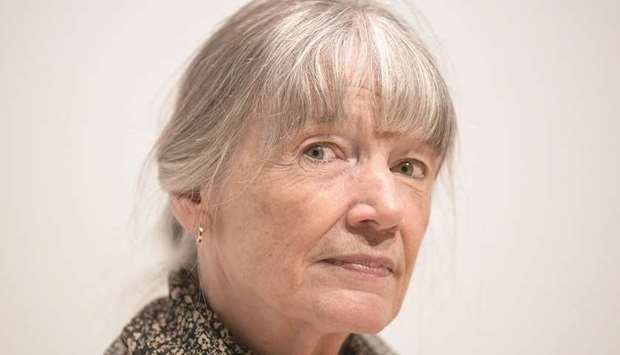Empty nesters are the mothers of reinvention. That’s one takeaway from Clock Dance, Anne Tyler’s reliably gratifying 21st novel. Another valuable lesson frequently played out in her fiction is that it’s never too late for even passive people to take control of their lives. This usually involves veering widely off-track in unexpected directions, a move that provides a literally diverting narrative catalyst.
Clock Dance runs with well-calibrated efficiency; it pulls you right in and keeps on ticking. Like many Tyler novels, including her most recent, A Spool of Blue Thread (2015), and her 1989 Pulitzer Prize-winner, Breathing Lessons, it spans decades in the life of its sympathetic main character. It is also filled with Tyler’s wry perspective on appealingly quirky, so-called ordinary people.
We meet Willa Drake in 1967 at age 11, in Lark City, Pa, when she is coping with yet another unsettling walkout by her mother. Ten years later, we check in on Willa again during a calamitous visit home to introduce her college friend. Her mother’s strident objections to this young man, though not entirely off-base, propel Willa into a marriage that derails her education and career.
Two more 20-year leaps bring us to 2017. Willa is now living in an Arizona golfing community with her insufferably stuffy second husband, Peter, a retired lawyer. Not a golfer herself, she’s woefully unoccupied, having given up her beloved job teaching English as a Second Language when they moved. After 100 pages of foundational background, the novel shifts into a higher gear when a stranger calls from Baltimore with a surprising request, Willa’s son’s ex-girlfriend, Denise, has been hospitalised after being hit in the leg by a stray bullet in a baffling accident, and there’s no one to care for her 9-year-old daughter, Cheryl. Why not, Willa thinks. It’s good to feel needed.
Peter finds it incredible that she’s so willing to drop everything for complete strangers. Tyler’s regular readers know better. The sad truth is that Willa has nothing to drop besides him. To underscore just how ridiculously idle Willa is, Tyler has her sorting her headbands by colour when the unexpected call for help comes.
Willa, like her sweet father, ‘Saint Melvin’, is an accommodator. When confronted with disturbing news such as why her son ditched Denise her first response isn’t censure, but exclamations like ‘Goodness!’ She chooses to be touched rather than irritated by her husband’s determination to accompany her east. In fact, she is a master at jollying him along. Tyler writes, “Marriage was often a matter of dexterity, in Willa’s experience.” Clock Dance, among other things, is about facing the accrued costs of these accommodations.
The setup is ripe for sly commentary on human behaviour, as willing Willa and petulant Peter move into Denise’s shabby house. No surprise: Willa connects easily with preternaturally capable little Cheryl, who has learned to compensate for her mother’s shortcomings, just as Willa did with hers. Tyler tries to keep their relationship crisp, but she doesn’t always win the struggle over mawkishness.
As always, location is a key in Tyler’s novel. The residents of Denise’s rundown Baltimore blocks, a whole collection of halting, faltering old folks, rescue one another’s roaming cats, play Scrabble, and run errands. There’s an old doctor who checks in on Denise and tries to persuade Willa to teach English at the immigrant centre where he volunteers. There’s a widow who lectures her about the importance of cherishing her husband. There’s leather-clad Sergio whose name lovestruck Cheryl amusingly interprets as ‘Sir Joe.’
Willa’s derisive son is as impervious to their charms as his stepfather. Over a dismaying dinner, he sums up his former neighbours, ‘A motorcycle hoodlum, a seedy private eye, a has-been doctor with a pack of Medicaid patients.’ He was viewing them from the wrong slant, Willa thought. They weren’t like that. Or they were, but there was more to them besides. But she didn’t want to argue.
She said, “How is your work, honey? Are things going well?’”
Tyler cuts through thorny issues surrounding Denise’s bullet injury with an ease that may strike some readers as improbable. But she gets pretty much everything else right in this heartening story. Once again, she throws light on the human condition by zeroing in on the quotidian concerns of people living quiet, unassuming lives in small, tightknit communities and makeshift, unconventional families. Her novels reassure us that the possibilities for meaningful connection which so often seem lost in our hectic world are still out there, though you may have to look for them. – Tampa Bay Times/TNS

REASSURING: Anne Tyler’s novels reassure us that the possibilities for meaningful connection which so often seem lost in our hectic world are still out there.
